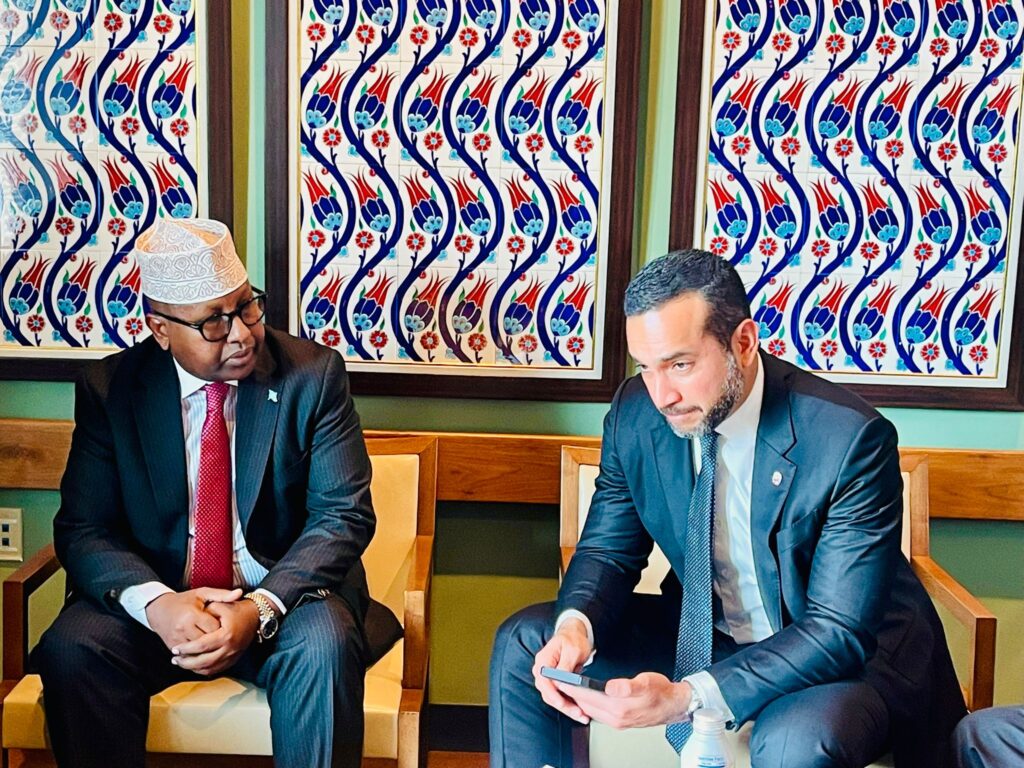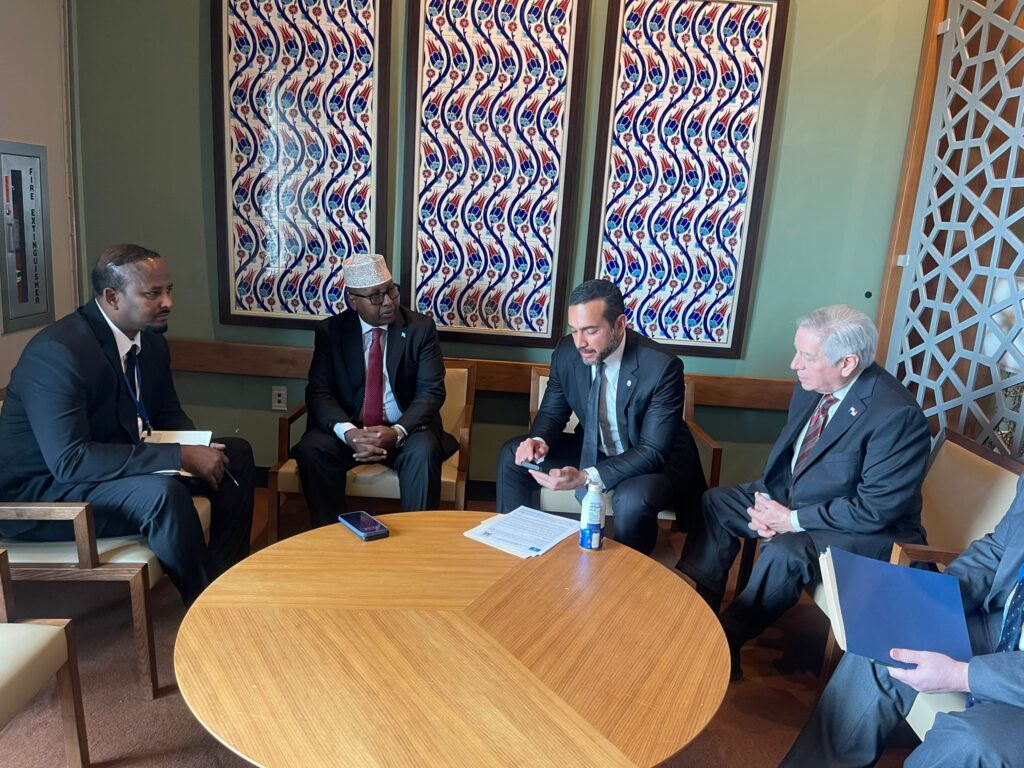NEW YORK, Jan. 20, 2025 – Panama and Somalia took significant steps toward establishing formal bilateral relations during a high-level diplomatic meeting at the United Nations headquarters today. The talks, led by Panamanian Vice Minister of Foreign Affairs Carlos Ruíz-Hernández and Somali Minister of Foreign Affairs Amb. Ahmed Moallim Fiqi, focused on strengthening ties between the two current UN Security Council members.
During the meeting, Vice Minister Ruíz-Hernández emphasized Panama’s strategic interest in expanding its African partnerships. “We consider ourselves to be the center of Latin America, and strengthening relationships with Africa aligns with our vision for broader global partnerships,” he said.
Minister Ahmed Moallim Fiqi expressed Somalia’s enthusiasm for formalizing relations, highlighting shared interests in counter-terrorism efforts. “Somalia is prepared to sign a bilateral relations agreement and stands ready to support Panama on significant issues in Latin America, as we seek their support for our priorities in Africa,” he stated.
The discussions centered on several key areas, including sovereignty, territorial integrity, and mutual support in international forums. As Security Council members, both nations explored opportunities for collaboration on global security challenges, with particular emphasis on stability in the Horn of Africa and equitable representation of African issues.
For Panama, this initiative represents part of a broader strategy to extend its diplomatic influence beyond the Americas. Somalia views the partnership as an opportunity to strengthen its international position and gather support for its development and security objectives.
The meeting concluded with both parties agreeing to establish formal bilateral relations. A joint statement emphasized their commitment to peace, stability, and potential collaboration in trade, security, and cultural exchange.
Diplomatic observers note that this partnership could significantly influence global peace and security decisions, given both nations’ current positions on the Security Council. The collaboration is seen as a testament to the growing importance of cross-regional partnerships in addressing contemporary global challenges.
The forthcoming formal agreement is expected to lay the groundwork for what both nations envision as a lasting diplomatic relationship, with potential implications for international cooperation between Latin America and Africa.









Discussion about this post